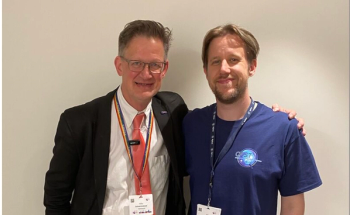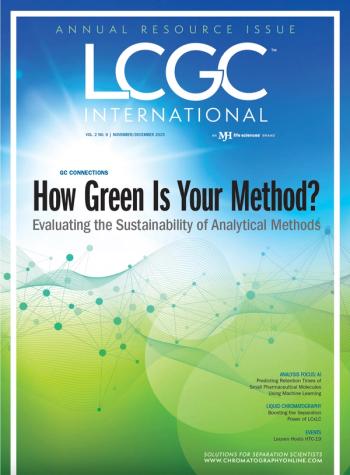
Award Symposium for the LCGC Lifetime Achievement and Emerging Leader Awards
The 2019 winners of the LCGC Lifetime Achievement and Emerging Leader Awards, Milos Novotny of Indiana University, and Ken Broeckhoven of the Vrije Universiteit Brussel, will be honored in this Tuesday afternoon session, in room 125.
The 2019 winners of the LCGC Lifetime Achievement and Emerging Leader Awards, Milos Novotny of Indiana University, and Ken Broeckhoven of the Vrije Universiteit Brussel, will be honored in this Tuesday afternoon session, in room 125.
The session will start with the presentation of the Lifetime Achievement Award to Novotny by session chair Laura Bush, the editorial director of LCGC.
Novotny was a pioneer in virtually all capillary separation techniques, starting with significant surface treatment technologies in the preparation of glass capillary columns for gas chromatography (GC). He developed the first credible combination of capillary GC with mass spectrometry (MS), and continued with his conceptually important work in capillary liquid chromatography (LC) and supercritical fluid chromatography (SFC). This was followed by seminal contributions to capillary electrophoresis (CE) and capillary electrochromatography (CEC) of peptides and carbohydrates. He is known as a major contributor to important methodologies, based on LC–MS and CE, in the areas of glycomics and glycoproteomics. Novotny will give a talk entitled, “Living with Chromatography: Research, Educational Aims and People” discussing these developments and the people involved.
Bob Kennedy of the University of Michigan will then discuss the use of ultrahigh-pressure LC–MS for lipid analysis. Kennedy’s group has used columns packed with 1.7 um particles with LC pressure systems up to 35,000 psi to generate peak capacity of 130–300 in 30 to 90 min gradients for lipids.
Novel column formats for compact capillary chromatography will be the topic of the next talk, by Milton Lee of Brigham Young University. Miniaturizing chromatography equipment presents some difficult challenges, and Lee will discuss approaches to solving them, including advances in microchip thermal gradient GC and compact LC, with particular emphasis on column technologies.
At 3:40 pm, just after the break, the Emerging Leader Award will be presented to Broeckhoven, who will then give a talk on the importance of fundamental and theoretical research for the advance of LC separations. He will discuss fundamental studies of the band broadening in LC columns and instruments that have contributed to a better understanding on how to achieve optimal separation performance.
Gert Desmet will close the session with a presentation on new fabrication methods for new chromatographic support structures. Desmet’s group has used advanced photolithographic and deep reactive ion etching techniques to produce perfectly ordered porous support columns, known as pillar array columns, that produce reduced plate heights below unity and produce peak capacities well over 1000. Results obtained on complex proteomic and metabolomic samples will be presented.
Newsletter
Join the global community of analytical scientists who trust LCGC for insights on the latest techniques, trends, and expert solutions in chromatography.



